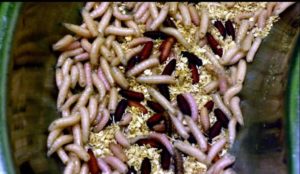I was trading stories with an old friend who had been a nurse at the hospital at Central Prison in Raleigh and he told me this story. My friend was off the record, which meant I couldn’t report it, couldn’t identify and interview the inmate and the doctor and put the story in the newspaper I worked for, The News and Observer. But I can tell you the story he told me.
* * *
My friend said an inmate was admitted to the prison hospital with a leg injury that required an operation.
The state was not able to get what you might call the best doctors in town to operate on inmates but, at least, the doctor who operated and put the inmate’s leg in a cast had a license.
After the operation the doctor sort of forgot about his prison patient, he didn’t come back to check on him.
A few days later the leg started smelling, bad, my friend told me. He said he called the doctor and told him he needed to come right away and see about the man’s leg, but the doctor didn’t come.
Other patients in the small ward at the hospital began complaining about the odor — the guy’s leg smelled like a week-old dead chicken. They complained so much the nurses moved them to another ward.
The odor got worse, so bad the nurses began wearing gas masks.
Finally, one of the nurses threatened the doctor: He absolutely had to come and find out what was wrong with this guy — or else. The “or else” must have gotten his attention, because he finally showed up.

The nurses wheeled the patient with the rotten smell back into the operating room, the doctor cut the cast off, and a gazillion maggots fell out on the floor.
NOTE: Actually, maggots are good for some wounds, according to an article in the American Association for the Advancement of Science. Paul Gabrielsen wrote: “Maggots are efficient consumers of dead tissue. They munch on rotting flesh, leaving healthy tissue practically unscathed. Physicians in Napoleon’s army used the larvae to clean wounds. In World War I, American surgeon William Baer noticed that soldiers with maggot-infested gashes didn’t have the expected infection or swelling seen in other patients. The rise of penicillin in the 1940’s made clinical maggots less useful, but they bounced back in the 1990’s when antibiotic-resistant bacteria created a new demand for alternative treatments. In 2004, the U.S. Food and Drug Administration approved maggot therapy as a prescription treatment.”
Coming Friday: The Constant Reminders